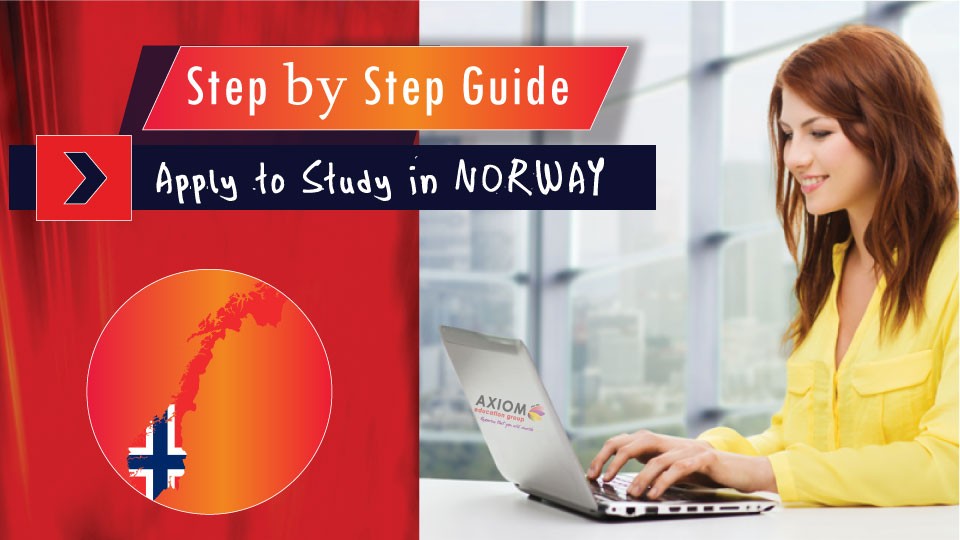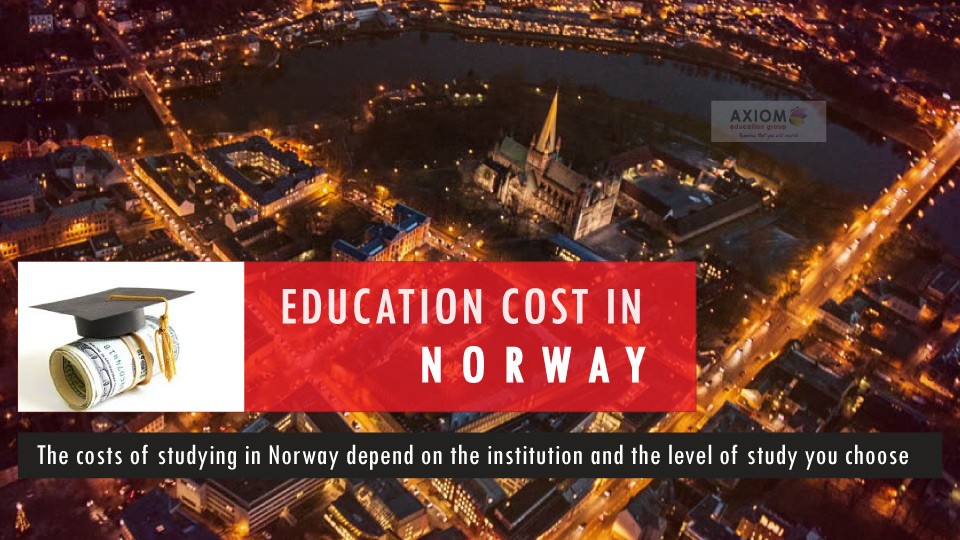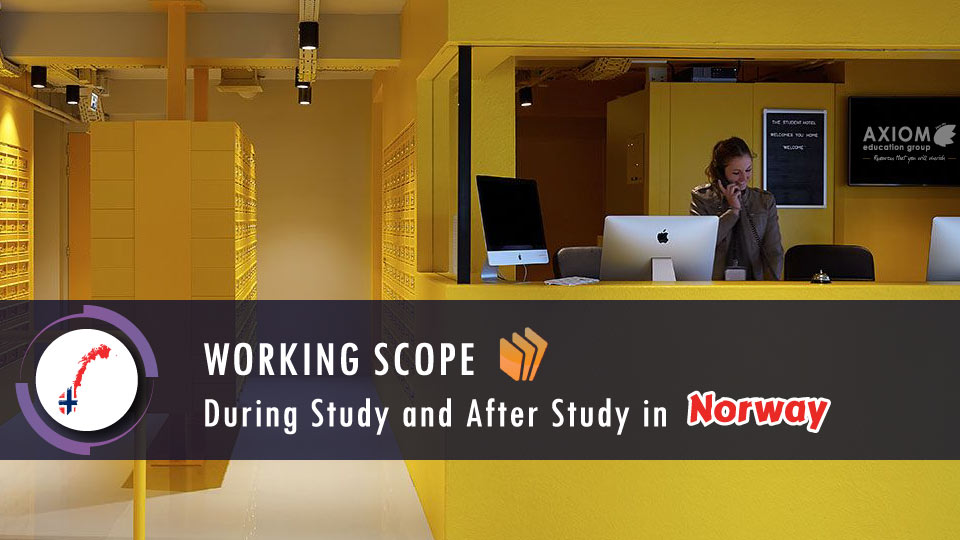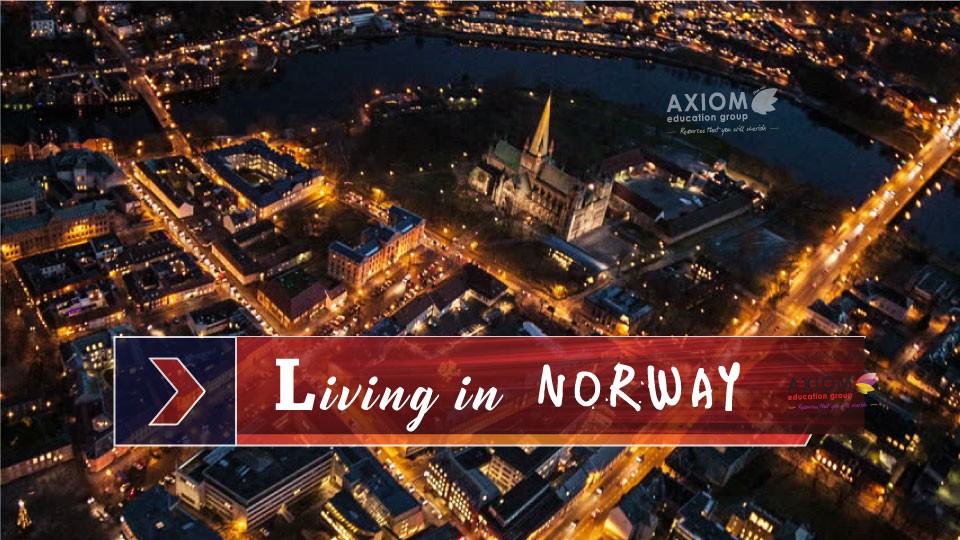
Norway offers you a unique student experience and Norwegian institutions of higher education welcome applications sent by qualified students from all over the world. Around 14 000 foreign nationals are currently enrolled at Norwegian institutions of higher education. International students may apply for admission to a variety of undergraduate and graduate degree programs.
With a wide range of high-quality courses and great flexibility, Norwegian institutions prove to be an ideal study destination. From vocational subjects to postgraduate and doctorate level, there are plenty of opportunities for students to fulfill their ambitions. You will also benefit from the informal atmosphere at Norwegian universities and university colleges, where teachers are easily approachable and tuition often takes place in small groups.
Get ready for all the important information you need to make a decision about studying abroad in Norway! Click on the tabs below to find out about the world-class universities & colleges for Diploma, undergraduate & postgraduate programs in Norway and practical information on applications, admissions, fees, scholarships, visas, local life and more….

International students must document their ability to finance their stay in Norway in order to be granted a residence permit for study purposes.
i.e. a minimum amount of money required to cover living expenses for one academic year in Norway.
Required amount
As already explained earlier, the amount required of applicants to bachelor’s and master’s degree programs is currently NOK 100 920. (1 Norwegian Krone equals approximately 9.03 Bangladeshi Taka)
Tuition fees
Usually there are no tuition fees in most of the Norwegian Universities. However, most students must pay a small semester registration fee around of NOK 550. This fee goes to student benefits and services offered by the Foundation for Student Life.
How to document financing?
Financing must be documented in one of the following ways:
· A recent official bank statement/transcript in the applicant’s name.
· A sponsor guaranteed letter + sponsor’s recent official bank statement/transcript. The sponsor should be aware that the required sum must be available as soon as the applicant is admitted. Sponsor’s letter and documentation to be submitted by the applicant.
· A letter confirming that you are eligible for a scholarship/student loan from your home country.
Sponsors
Many students depend on a sponsor for financial support. A guarantee from a sponsor is a letter in which the sponsor states that they are willing to transfer the required amount upon the applicant’s admission to the University including a recent bank statement/transcript showing that the money will be available. The sponsor guarantee must be provided at the relevant application deadline and submitted by the applicant.
If you are going to stay in Norway for more than six months you should register with the National Registry so that you can be awarded an 11 digit identity number (your date of birth plus a 5 digit personal number). This is done at the local tax assessment office (“Likningskontor”). The number is required for opening a bank account, obtaining a student card among other things.
Students from the Nordic countries and students who are going to stay in Norway for less than six months may apply for a D-number ( dummy number). This number may be used to open a bank account. To apply for this number, contact your local tax assessment office, or the Office of the National Registrar in Oslo if you are located abroad.
Do not worry, the Norwegian institution will have established routines for how their international students may proceed to get this organized. We advise you to contact them as soon as you have been admitted (and have confirmed the offer).
Health services in Norway are of high standards. As a student in Norway, you are ensured professional medical treatment no matter which part of the country you are living in.
In most cases, the treatment is free of charge if certain prerequisites are met. These prerequisites vary depending on your current nationality and length of stay in Norway. Please study the regulations below carefully.
Your right to health services in Norway depends on your status as a resident of Norway. If the duration of your stay in Norway is more than one year you automatically become insured under the National Insurance Scheme when you register as a student at a Norwegian institution of higher education and get a student residence permit in Norway.
For all others, you should have other insurance to cover any medical expenses you might incur in Norway.
In order to open a bank account in a Norwegian bank, you will need a Norwegian identity number. You can choose between local or regional banks or banks with branches all over Norway. Some banks are also pure online banks, with no physical branches. Norwegian banks have advanced solutions for online banking so you can administrate your accounts, pay bills and transfer money online. Foreign credit cards are widely accepted in Norway and cash machines are easily available.
The Moment when all the practicalities are in place is you can start focusing on what next. As a student in Norway, you will never be short of life experiences. No matter what your preferences are, you should be able to find something of interest beyond books and classes. The freedom of nature is never far away, even in the major cities. And many cities have a vibrant cultural life with coffee bars and music clubs. Life in Norway will never be dull.
All institutions have a student welfare organization. Your local student welfare organization can offer a variety of services, from on-campus health services to sports activities. We highly recommend to make use of their services – after all, they are there for your own well being. You normally become a member upon payment of the compulsory semester fee, which is also required in order to register for exams. Depending on the size of the institution, they offer a wide variety of services. Among other things, they organize nursery schools, counseling, mental health services, canteens, student accommodation, and sports facilities/activities.
DIBP introduced a number of changes to simplify the student visa application process. From March 2014, the Assessment Level (AL) Framework has been simplified to three assessment levels (AL1 to AL3) through the removal of AL4 and AL5. Former AL4 countries have now been reduced to AL3. AL3 applicants will also see reduced financial requirements and are now only required to show evidence of funds to support 12 months of study, as opposed to the former 18 months.























